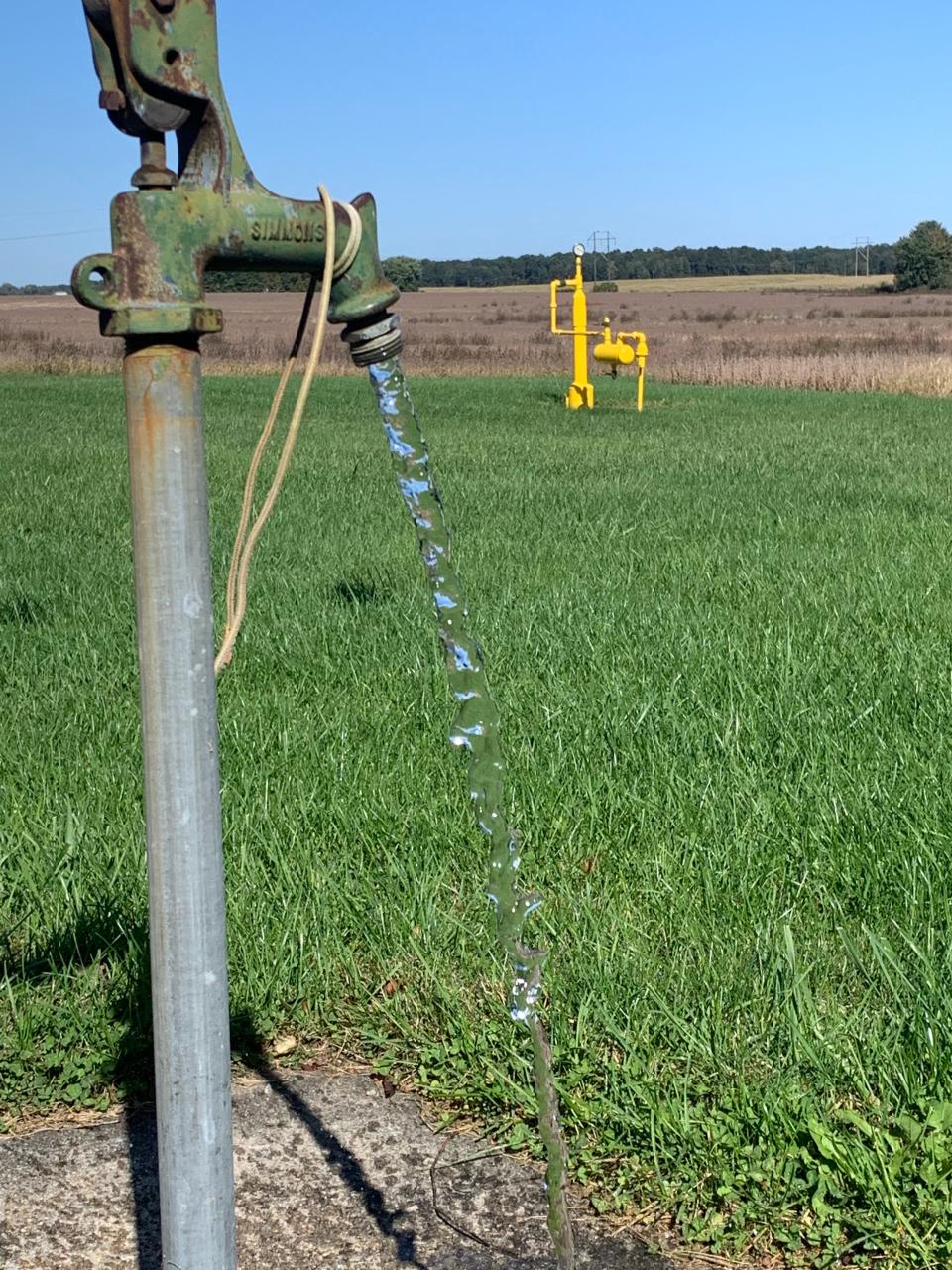Ball State sustainability project: Lack of private well regulation can cause health issues
Editor's Note: The following is part of a class project initiated in the classroom of Ball State University professor Adam Kuban, who challenged his students to find sustainability efforts in the Muncie area. Several such stories will be featured in The Star Press in November.
Fields of corn and soybeans stretch across much of the farmland in Indiana, using large amounts of water, pesticides and herbicides each year.
For some rural farmers, not having access to municipal water, their source for water is through a private well. Excess water and chemicals from farming have to flow somewhere. Runoff from the fields can soak in the ground, contaminating the groundwater in that well.

According to Centers for Disease Control and Prevention, runoff is not the only possible cause for contamination: Septic tanks and naturally occurring chemicals like arsenic and nitrate can cause contamination to groundwater if not treated or tested properly.
Ball State sustainability project: Certain popular backyard plants considered invasive
Due to runoff and other natural complications, it’s not uncommon for private wells to become contaminated, and if they go unchecked, a contaminated well could cause serious health issues.
According to the Environmental Protection Agency’s website, consuming high levels of heavy metals that can be found in groundwater movement and runoff in many private wells risk chronic toxicity, kidney damage and cancer.
Bernard and Jerry Diekhoff of Decatur County lived on private wells for over 50 years and recently moved closer to the city after retiring from farming. Over their years of farming, they said they had a total of two dug-wells and a drilled well.
The Diekhoffs mentioned that one of their dug wells had been tested and found to be contaminated with E. coli; however, they said they had been acclimated to the bacteria in the water, and they could have developed an immunity.
“We must have passed that on to our children, but any city person or child acclimated to city water should probably not drink that well water,” said Jerry Diekhoff.
More BSU sustainability coverage:
►BSU journalism, geography project showcases area sustainability efforts
►Cover crops save money and the soil
►Could climate change affect solar energy?
According to the CDC, most strains of E. coli are harmless, but there are a few that can cause severe illness like diarrhea and pneumonia. The CDC also mentions that private wells can be more vulnerable to E. coli contamination due to agricultural runoff, flooding and sewage systems not working properly.
Many other health issues from contaminated groundwater have been discovered throughout the years. Pesticides and herbicides, known to help with plant growth and weed control, contain chemicals that, if ingested, could cause detrimental health issues.
For example, recent lawsuits have issued from a common herbicide, paraquat, that has been linked to Parkinson’s disease. According to a 2019 study by Carolina Vaccari and other scientists published in the Journal of Toxicology and Environmental Health, participants who were exposed to paraquat showed a 25% increase in occurrence of Parkinson’s disease.
“You never know what is going to be in that water, so I would probably have it tested at least once a year,” said Matt Diekhoff.
Congress passed the Safe Drinking Water Act in 1974 to protect and set regulations for the public drinking water supply; however, it is stated within the act that private well owners are responsible for the safety of their water, according to the EPA.
The EPA also states on its website the agency does not regulate private wells or provide recommended criteria or standards for individual wells. With no regulations in place, it’s possible many private wells go untested and untreated.
Mike and Cheryl Ward are cattle farmers who are surrounded by their neighbors’ crops.
“We tested our well when we first moved in, which was in 1984, but we haven’t had it tested since then,” said Cheryl Ward.
Ball State sustainability project: Muncie forestry leadership plants native trees around city
The Wards have expressed curiosity about their drinking water but are not concerned. They recently had their well cleaned of any debris and installed a submersible pump, which would rotate the water in the well to the pipes. However, the water was not tested for any contaminants.
The EPA’s website offers tips and information about how to test your water and what to look for that could be harmful, how to treat well water and qualified opportunities for subsidized cost of testing.
According to the EPA, protecting America’s drinking water is a top priority, but citizens like the Diekhoffs say they believe in more and possibly required testing for private wells through policy reform.
They added that required and frequent testing would be beneficial for citizens on private wells and possibly improve their future health. In some cases, private wells are people’s only source of drinking water, and without proper regulation and maintenance, it can be difficult to tell what’s going on underneath.
This article originally appeared on Muncie Star Press: Contaminated well water poses health concerns

